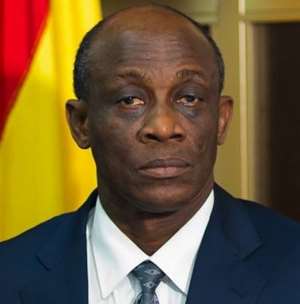
We were in Ghana on 21-22 May to get a sense of the current situation on the ground. We met with the Bank of Ghana (BoG), the World Bank and banks under our coverage. Ghana Commercial Bank (GCB) and Ecobank Ghana left us feeling the most positive on their equity stories, while CAL Bank left us with some concerns. We are reviewing our forecasts following our meetings with management.
Macro still dominates.
It was no surprise to us that each meeting started with discussions around the macro environment and what the IMF package has meant so far. We found a consensus that the terms of the package are stringent but that the IMF was not the solution to all of Ghana’s macro problems. With elections due in late 2016, investors think political spending could rise again.
However, the IMF has factored this into its expectations and government officials have agreed to a more rational pre-election spending profile. More important to us was how the average Ghanaian has managed through the crisis. Inflation is biting hard and the recent 9% increase in fuel prices is another source of pain. Power is being rationed and businesses are therefore struggling to produce or meet their delivery targets. This could further drive NPLs in the banking sector.
BDC debts at $500mn – half the current claims in Nigeria
This visit to Ghana helped us draw some important parallels with Nigeria. While bulk oil distribution companies (BDCs) in Ghana are holding out for at least $500mn (GHS2bn) in outstanding payments from the government for under recovery (the difference between the fuel pump price and the BDC purchase price) and FX losses, oil marketers in Nigeria are claiming c. $1bn in outstanding subsidy and FX losses.
Fuel stations in Nigeria are already seeing queues, and we heard some airlines have been having to source jet fuel in Ghana, which is not yet seeing fuel shortages. However, the banks have significantly slowed financing of new oil imports, meaning a fuel crisis may not be far away. BDCs and banks would like to see a full deregulation of fuel prices across the entire value chain.
We think the BDCs’ outstanding claims could be a significant driver of NPLs if the issue is not resolved, and see the potential for knock-on effects across the economy, as we are currently seeing in Nigeria.
What Are The Banks Saying?
Ghana Commercial Bank (GCB): This was a very good meeting partly because we met the ever-impressive CEO, Simon Dornoo. GCB remains a turnaround story and the most exciting takeaway for us was that the bank sees room for extraordinary income in 2015 and a 30-40% decline in absolute costs. Ecobank Ghana: This meeting left us feeling the bank is relatively unaffected by the macro backdrop – with falling NPLs and CoR and steady RoEs above 40%. CAL Bank: We had mixed feelings after this meeting – we found trends in the bank’s margins counter-intuitive, given its positioning and the macro backdrop, and management added little clarity.
Overall, the banks are yet to re-price base rates post the recent hike in the main policy rate, and we understand they are unlikely to do so if T-bill yields do not react significantly. There was talk of tight liquidity in the interbank market, partly because of high government domestic borrowings and the BDC crisis. NPL trends are hard to read as the BoG has started approving NPL write-offs.
Regulations could tighten on bank charges, and there was talk of the BoG soon conducting a special audit to verify BDC claims. We are reviewing our forecasts post our meetings with the banks, but approaching elections and the macro environment remain concerns for us.




 Former Kotoko Player George Asare elected SRC President at PUG Law Faculty
Former Kotoko Player George Asare elected SRC President at PUG Law Faculty
 2024 elections: Consider ‘dumsor’ when casting your votes; NPP deserves less — P...
2024 elections: Consider ‘dumsor’ when casting your votes; NPP deserves less — P...
 You have no grounds to call Mahama incompetent; you’ve failed — Prof. Marfo blas...
You have no grounds to call Mahama incompetent; you’ve failed — Prof. Marfo blas...
 2024 elections: NPP creates better policies for people like us; we’ll vote for B...
2024 elections: NPP creates better policies for people like us; we’ll vote for B...
 Don’t exchange your life for wealth; a sparkle of fire can be your end — Gender ...
Don’t exchange your life for wealth; a sparkle of fire can be your end — Gender ...
 Ghana’s newly installed Poland train reportedly involved in accident while on a ...
Ghana’s newly installed Poland train reportedly involved in accident while on a ...
 Chieftaincy disputes: Government imposes 4pm to 7am curfew on Sampa township
Chieftaincy disputes: Government imposes 4pm to 7am curfew on Sampa township
 Franklin Cudjoe fumes at unaccountable wasteful executive living large at the ex...
Franklin Cudjoe fumes at unaccountable wasteful executive living large at the ex...
 I'll 'stoop too low' for votes; I'm never moved by your propaganda — Oquaye Jnr ...
I'll 'stoop too low' for votes; I'm never moved by your propaganda — Oquaye Jnr ...
 Kumasi Thermal Plant commissioning: I pray God opens the eyes of leaders who don...
Kumasi Thermal Plant commissioning: I pray God opens the eyes of leaders who don...
